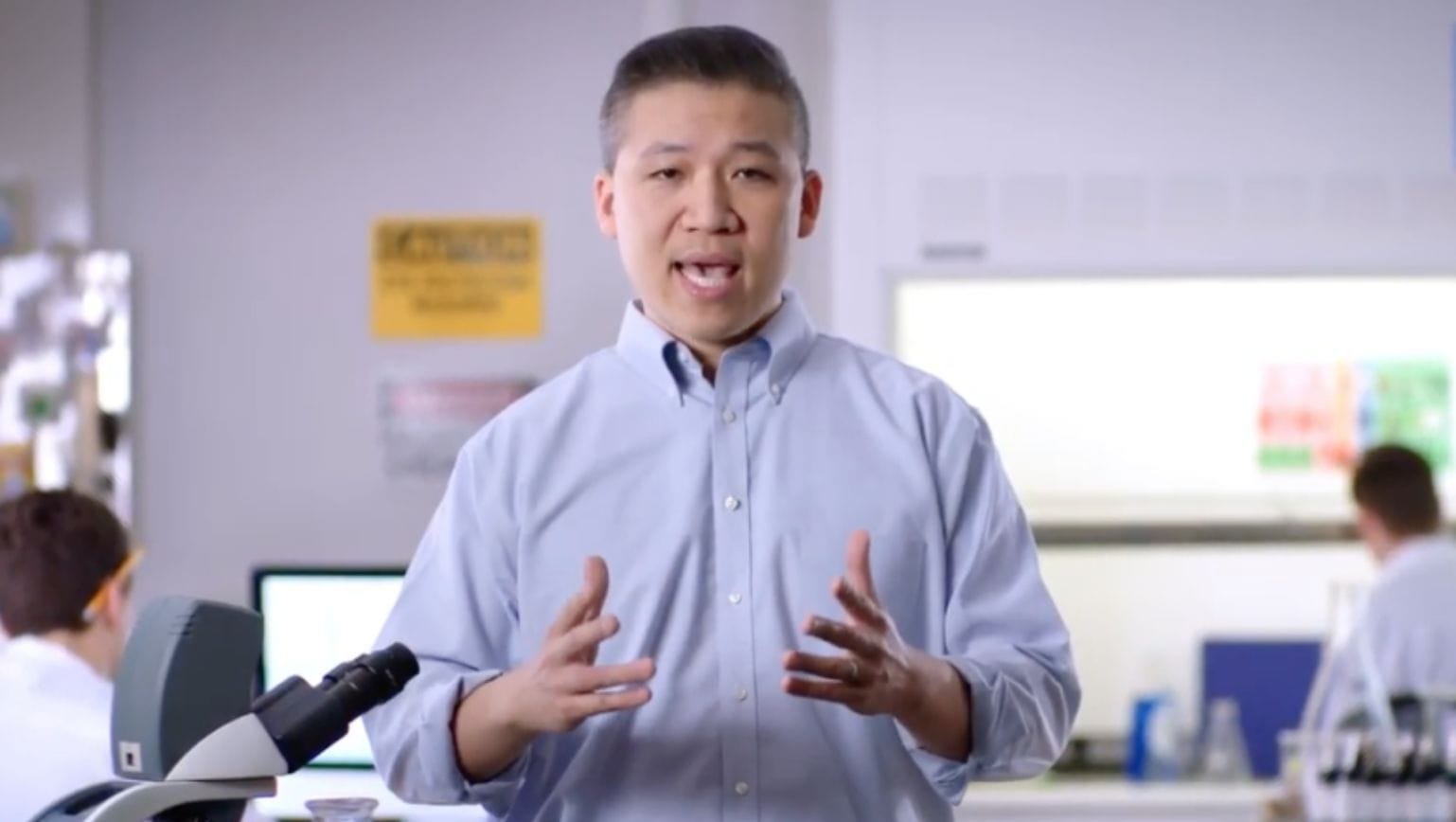Eric Feigl-Ding

Eric Feigl-Ding is a Chinese-American epidemiologist and health economist based in the Washington, D.C. area. He is a former senior fellow of the Federation of American Scientists, Chief Health Economist for Microclinic International, and a fellow of the Paul & Daisy Soros Fellowships for New Americans.[1][2]
History
Feigl-Ding received a Bachelor of Arts from Johns Hopkins University, where he studied public health and natural science from 2001-2004, and was part of the Phi Beta Kappa society. From 2004-2007, he studied at Harvard University for a Doctor of Science in Epidemiology and Nutrition. In August 2007, he began studying at the Boston University School of Medicine, but departed after 2.5 years to become a faculty member at Harvard Medical School.[3]
Career
On May 26, 2007, Feigl-Ding launched the Campaign for Cancer Prevention on Facebook's fundraising platform, Causes.[4] Funds raised were directed to Brigham and Women's Hospital.[5]
In 2015, Feigl-Ding co-founded Happy Vitals, a family health data company.[6][7] He launched Toxin Alert at the end of 2016, supported by Happy Vitals and the World Economic Forum's Global Shapers Community through Washington DC Global Shapers and Boston Global Shapers.[8] Toxin Alert was an initiative of the Future Health Foundation.
He participated in the Global Burden of Disease Study funded by the Bill & Melinda Gates Foundation.[1:1][9]
Feigl-Ding was a candidate in the 2018 Democratic primary for Pennsylvania's 10th congressional district.[10] He ran a political action committee (PAC) called Health Justice for All.[11]
COVID-19
During the declared COVID-19 pandemic, Feigl-Ding served as chief of the COVID Risk Task Force at the New England Complex Systems Institute (NECSI).[12] He was a signatory to the John Snow Memorandum, originally published in The Lancet in October 2020.[13]
Feigl-Ding participated as a speaker at the COVID Community Action Summit in January 2021.[14] He co-founded the World Health Network.[12:1] From August 2021-May 2023, he served as an observer member of the World Health Organization (WHO)'s Technical Advisory Group on COVID-19 Mortality Assessment.[15][16]
External links
Meet the Fellows | Eric Feigl-Ding. Paul & Daisy Soros Fellowships for New Americans. Retrieved April 21, 2022, from http://archive.today/2022.04.21-132912/https://www.pdsoros.org/meet-the-fellows/eric-ding ↩︎ ↩︎
Hu, J. C. (2020, November 25). Covid’s Cassandra: The Swift, Complicated Rise of Eric Feigl-Ding. Undark Magazine. http://archive.today/2021.12.14-072026/https://undark.org/2020/11/25/complicated-rise-of-eric-feigl-ding/ ↩︎
Education | Eric Feigl-Ding. LinkedIn. Retrieved July 15, 2025, from https://www.linkedin.com/in/ericding/details/education/ ↩︎
Chen, P. W. (2011, December 8). A Web Campaign for Cancer Prevention. New York Times. http://archive.today/2022.09.14-111234/https://archive.nytimes.com/well.blogs.nytimes.com/2011/12/08/a-web-campaign-for-cancer-prevention/ ↩︎
About Campaign for Cancer Prevention. Causes. Retrieved December 21, 2011, from https://web.archive.org/web/20111221220524/http://www.causes.com/causes/210-campaign-for-cancer-prevention/about ↩︎
Who We Are. Happy Vitals. Retrieved May 30, 2016, from https://web.archive.org/web/20160530225926/https://www.happyvitals.com/who-we-are-our-mission ↩︎
Happy Vitals. (2015, October 13). Happy Vitals Launches First Laboratory Direct-to-Consumer Home Testing Kit for Breast Milk. PR Newswire. https://web.archive.org/web/20201127125729/https://www.prnewswire.com/news-releases/happy-vitals-launches-first-laboratory-direct-to-consumer-home-testing-kit-for-breast-milk-300158235.html ↩︎
Home. Toxin Alert. Retrieved December 21, 2016, from https://web.archive.org/web/20161221093210/https://www.toxinalert.org/ ↩︎
Mokdad, A. H., Forouzanfar, M. H., Daoud, F., El Bcheraoui, C., Moradi-Lakeh, M., Khalil, I., Afshin, A., Tuffaha, M., Charara, R., Barber, R. M., Wagner, J., Cercy, K., Kravitz, H., Coates, M. M., Robinson, M., Estep, K., Steiner, C., Jaber, S., Mokdad, A. A., & O’Rourke, K. F. (2016). Health in times of uncertainty in the eastern Mediterranean region, 1990–2013: a systematic analysis for the Global Burden of Disease Study 2013. The Lancet Global Health, 4(10), e704–e713. https://doi.org/10.1016/s2214-109x(16)30168-1 ↩︎
Ding, E. (2018, May 11). I’m running for Congress because facts matter. PennLive. https://web.archive.org/web/20180513230256/http://www.pennlive.com/opinion/2018/05/im_running_for_congress_becaus.html ↩︎
PAC Profile: Health Justice for All. OpenSecrets. Retrieved July 15, 2025, from https://www.opensecrets.org/political-action-committees-pacs/health-justice-for-all/C00695619/summary/2020 ↩︎
Eric Feigl-Ding. New England Complex Systems Institute. Retrieved November 13, 2022, from https://web.archive.org/web/20221113182546/https://necsi.edu/eric-feigl-ding ↩︎ ↩︎
Signatories of The John Snow Memo. John Snow Memorandum. Retrieved November 15, 2022, from https://web.archive.org/web/20221115080748/https://www.johnsnowmemo.com/34013600.html ↩︎
COVID Community Action Summit. New England Complex Systems Institute. Retrieved November 14, 2022, from https://web.archive.org/web/20221114183649/https://necsi.edu/c-cas#orgs ↩︎
Technical Advisory Group on COVID-19 Mortality Assessment - Membership. World Health Organization. Retrieved July 15, 2025, from https://web.archive.org/web/20250715204815/https://www.who.int/data/technical-advisory-group/covid-19--mortality-assessment/membership ↩︎
Eric Feigl-Ding. LinkedIn. Retrieved July 15, 2025, from https://www.linkedin.com/in/ericding/ ↩︎